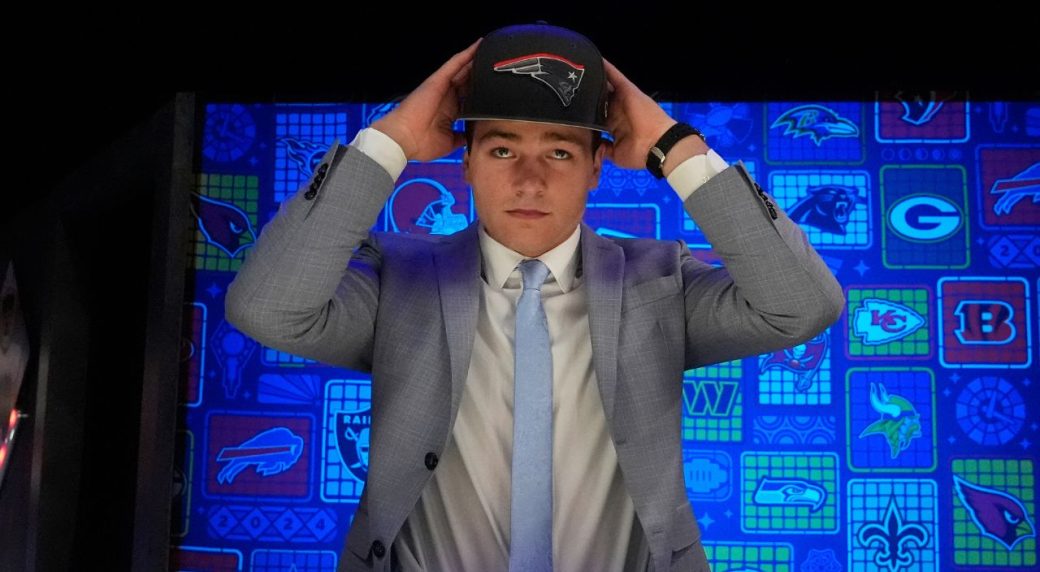It might still be early in the offseason, but with OTAs underway, players, especially rookie quarterbacks, are already being scrutinized for how they’re looking on the field and what that could mean about their potential.
That’s been the case with the Patriots’ new quarterback, Drake Maye, over the past two weeks, which kicked off with a less-than-promising evaluation from head coach Jerod Mayo. It created headlines depicting Maye’s early development as problematic, but in the OTA practices since, he has remained one of the most impressive performers on the roster.
Even with that being clear, the share of quarterback reps is not in Maye’s favor. He continues to receive less than Jacoby Brissett and Bailey Zappe, which has been bothering New England fans who want the rookie to be the starter in Week 1.
However, reports have revealed that the new regime is utilizing unique technology to give Maye more practice time to aid in his development, which could be a game changer. And it’s likely something we never would’ve seen in Foxboro if Bill Belichick was still calling the shots.
Patriots new training regimen for Drake Maye would make Bill Belichick laugh
It’s 2024, and technology continues to dominate nearly every facet of life, including sports. According to Mayo earlier this week, the Patriots are introducing that into Maye’s training and development.
The head coach revealed they’re using virtual reality to give the quarterback more reps when not on the football field, claiming it is more interactive and on-the-job training than reading a book or taking notes from a lesson. It allows Maye to get more “real-life looks” and a better understanding of defenses by seeing it through VR goggles, which is an intriguing addition to any training regimen.
“It’s a case-by-case basis, but I would also say, it’s not only what is done out here on the football field. I know that when we talk about meetings, we usually talk about sitting at a desk and taking notes, but we have spaces inside the building where you can actually go out there and get real-life looks at the defenses and go through the calls with coaches, so he’ll get his reps.
“I think the virtual stuff is great and that’s another way that you can steal some of those reps without being on the football field. We’re absolutely interested in that type of technology, we have rooms in the building that have some of that technology, but obviously, technology changes every single day. We’re looking for the best thing.”
Because many people are skeptical of how beneficial something like VR can be in something like football, Mayo’s explanation is easy to get behind. Technology is constantly improving and virtual reality has seen a dramatic increase in usage in recent years, so it makes sense it’s now becoming part of sports.
The technology has become so popular that even LSU’s Director of Athletic Training, Jack Marrucci, spoke about how the Tigers used it with Jayden Daniels, the second overall pick of the 2024 Draft, and it has significantly improved various aspects of his performance.
The use of VR to aid in Drake Maye’s development shouldn’t be mocked.
The system was implemented at LSU and Jayden Daniels’ on-field processing improved significantly and may have been essential to his Heisman season.
LSU Director of Athletic Training Jack Marrucci: pic.twitter.com/2qyu4gQB8O
— Boorish (@Boorish_Sports) May 30, 2024
The Commanders’ new quarterback was a favorite among Patriots fans to be drafted by New England, so if VR helped him, why shouldn’t the team use it with Maye?
It would seem that allowing the quarterback to train more when he doesn’t have access to or the time to get on the field would only benefit him. And that is far from being a bad thing, especially with all the pressure he will have as the Patriots’ new franchise quarterback.












